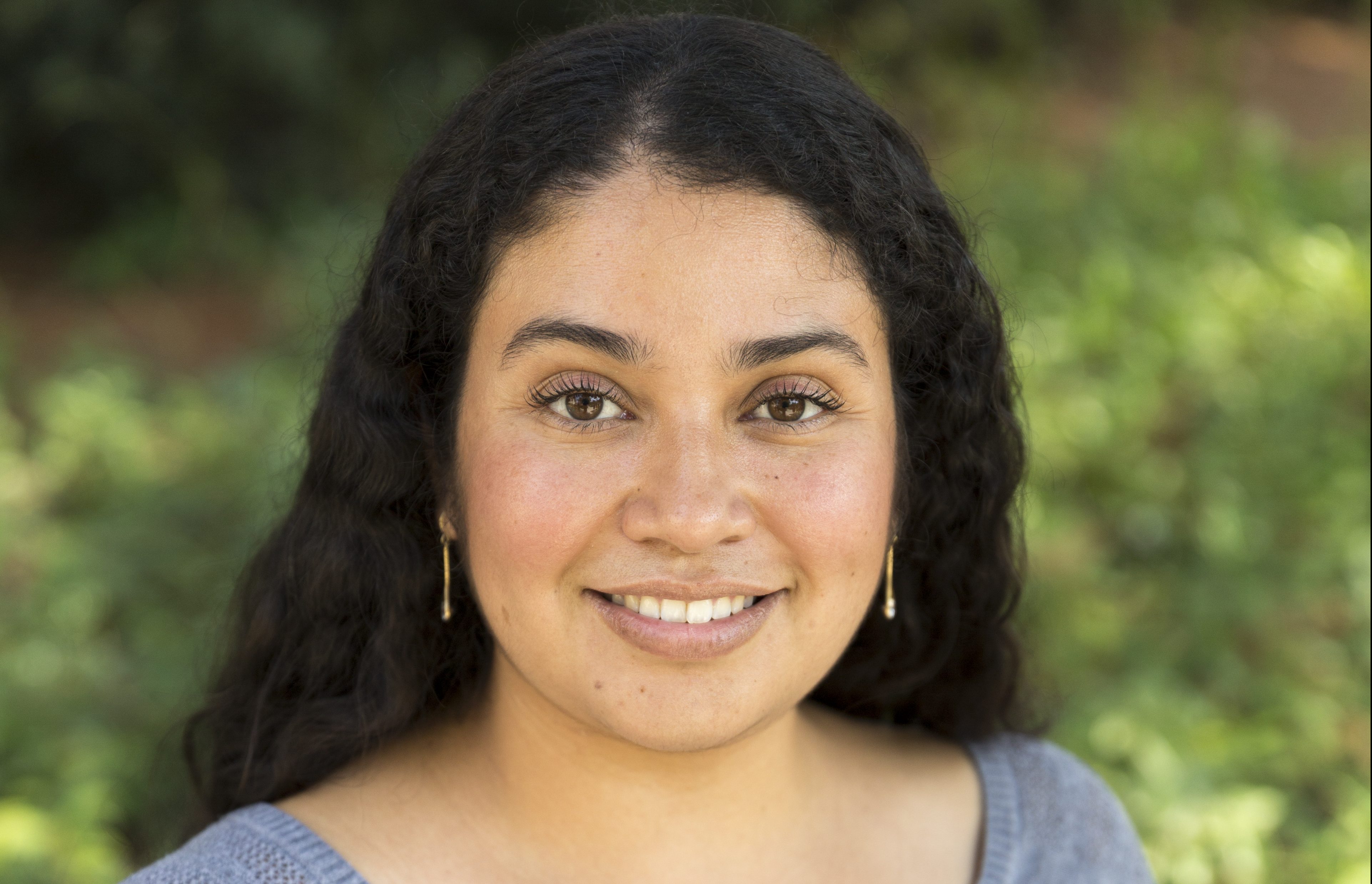By Vyctorya Thomas-Vanzant
When we first step foot on a college campus, some of us don’t know what to expect. At times students enter with a steady plan and career path in mind, but it isn’t uncommon that a student finds another passion along the way. CI Professor Cynthia Flores had entered college with the expectancy of becoming a high school math teacher, but through the advice of a professor, she decided to become a math professor instead. Recently she was nominated and went on to receive the title of one of the Top 15 Emerging Scholars in the 35th issue of Diverse Issues in Higher Education. But like every accomplishment, there is a story preceding it.
As a child, Flores had strong confidence in her math abilities that she had gained from her job. “Every weekend I’d go with my dad to swap meets,” she said. “My job was to go to work with my dad in an outdoor swap meet and manually cashier.” Her dad never directly told her she was good at math, but the responsibility he gave her was her validation.
Though Flores was an excellent student and was even identified in elementary school as “gifted and talented”, this reputation didn’t follow her as she frequently switched schools. Shockingly, her skill in math lead her to being kicked out of her Algebra 2 class as a sophomore in high school.
She shared that she had a teacher who “liked complete control of the classroom” and “would do things on the board and expected you to just replicate exactly what he said.”
“I think I got creative one time on an exam and I just did the problems in a completely different way,” Flores said. “I never knew what his expectations were, I just solved the problem.” Despite getting the problem correct, the teacher failed her, further stating that “there’s no way (she) could solve them that way.”
She spoke to the teacher about the grade, asking why he had failed her when there was nothing to prove she had cheated. After telling him that his decision was unfair, Flores stated that “he called me out at some point for being a girl…I just remember saying something along the lines of ‘you sir are an unkind man’.” He sent her to the principal’s office where she was told that the teacher was very upset that she had stood up to him and no longer wanted her in his classroom.
“The principal went on to explain to me that all the sections of algebra 2 are filled and that I would have to take a free period for the rest of the semester”, a conflict that would interfere with the four year high school math requirement. Luckily she switched schools and received help from a counselor who advised her to take the course at a nearby community college; there she was able to catch up with her math requirements. But still, more conflicts would come her way.
“Having to switch high schools, I never got that regularity of the timeline when things happened. I always counted on counselors telling you what to do, when to do them,” said Flores. She recalled how one day a counselor made an announcement on the PA system reminding students that it was the last day to apply to all CSU’s. “I was thinking ‘What!? Already!?’,” said Flores.
Professor Flores immediately went to the counselor’s office and explained her situation. She was given a paper application and began filling everything, including her written statement, in pen. She applied to CSU-Northridge (CSUN), the college nearest to her.
When she came to the section where she had to select a major, she shared that she “had never heard the word ‘major’ in that context.” The counselor helping her said she would be an undecided major though Flores had always known that she wanted to be a high school math teacher. Her reason was because she didn’t want any girl to go through what she went through with her previous math teacher.
“I did not come here on a nice, neat path,” said Flores. Even at CSUN she mentioned that she wasn’t aware she had to take a calculus placement exam in order to skip college algebra and pre-calculus. She had received a postcard from the university listing a date and time. Thinking it was a counseling appointment, she showed up to the campus unsure of where to go.
Eventually she was directed to Admissions and Records where they helped her choose her classes. However, when she tried to sign up for Calculus, the system didn’t allow it. She learned that it was because the Calculus Placement Test wasn’t on her transcript. Luckily there was one last offering of the test which she signed up for on the spot. If she had missed it, she would have had to take college algebra and pre-calculus again, which would have added an additional year to her studies.
“It’s one of those things where everything happened at the right moment. Any change in that would have resulted in drastic changes for me,” said Flores
After graduating with her Ph.D. in 2014 from University of California, Santa Barbara, Flores has been working to earn her full professorship. At the moment she is in the process of earning her Associate Professorship.
“I didn’t even know I was nominated to be honest with you,” said Flores. “I had seen the magazine before, I had seen the type of scholars that get selected, and I always aspired to be one. I just didn’t think it would happen to me so soon.”
Flores later learned that her department chair and administrators worked together to enter nominations for some of the CI Faculty.
“When they interviewed me, they told me that nearly 1,000 were nominated for the position across the United States,” said Flores. “What would set my application apart was the expectations, the high expectations, that I placed on my undergraduate researchers.”
“I really hope that as I develop as a professor and have more flexibility in my teaching schedule that I have the opportunity to teach calculus, and even pre-calculus,” Flores said. “I think this is where you really can inspire students to love mathematics.”
Before closing the interview, Professor Flores shared a piece of advice for CI students.
“There’s a relationship between chaos in your life and uncertainty, and so the reality is this: that they balance eachother out. Some people think that the more uncertainty they have in their life, the more chaotic it is, but it’s actually the opposite,” said Flores.
“So the more uncertain you are about something, actually you’ve reduced the amount of chaos in that system. So if sometimes you don’t know what to do, you just got to remember that that’s not a bad position to be in. It just means that if you don’t know what you’re going to do in the future, it’s less likely that something is going to go wrong.”

